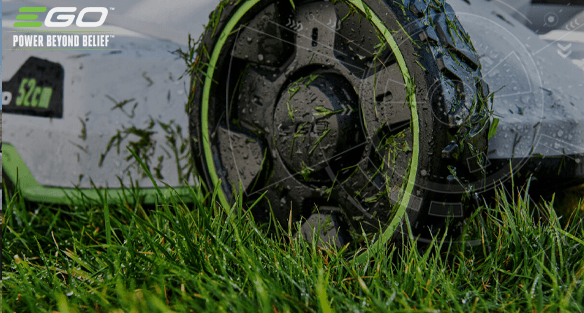- The more efficient way to cut your lawn is to trim the edges first. This will allow for the clippings to be either mulched or collected by the mower. Cut around the edge wide enough so you can turn the mower around without driving into a flower bed.
- To avoid brown patches, don’t cut the grass too short; during the cold season, leave the lawn from 5 to 7 cm long, during the warm season instead, 3 to 6 cm.
- Take your time; if the grass is tall or slightly wet, it can cause clumps of mulch and uneven patches.
- Don’t look at the wheels but look at the ground 5 meters ahead of you, it will help you going in a straight line.
- Picking up clippings will keep the garden cleaner but mulching puts the grass particles back into the turf, providing nutrients such as nitrogen to the soil, so in the end, you'll end up with healthier turf.
- Grass will grow in the direction in which you mow it. Changing direction each time will encourage grass to grow straighter and healthier.
- Check if the blade is sharp. A sharper blade makes cleaner cuts that will keep your lawn healthier throughout the year. A dull blade rips the grass blade instead of cutting it sharply, which will make the grass plants more susceptible to disease.
- Each time you mow your lawn, make sure you check it first; pick up rocks, sticks, toys, and anything else that may nick the blade as you go along. Also, try to mow the grass when it is dry as wet grass will cause the blade to dull much faster.
- Plan to sharpen your blade at least twice each season. First, remove the battery and remove the safety key. Remove the blade and clean it off wearing safety gloves. To sharpen your blade, clamp your blade in a vice and file both edges of the blade with a fine tooth file. Make sure that you file at the same angle as the existing cutting edge.
- Apply a fertiliser to your lawn to replenish any missing nutrients. Continue to water it if necessary. Remember it is best to do this in the evenings or early in the morning. This gives the water a chance to sink into the lawn rather than evaporate.
- For the best results aerate your lawn by spiking it with a rake or using a scarifier or aerator and then water. Alternatively, mow your lawn in the evening during hot periods as this reduces the risk of excessive dehydration.
